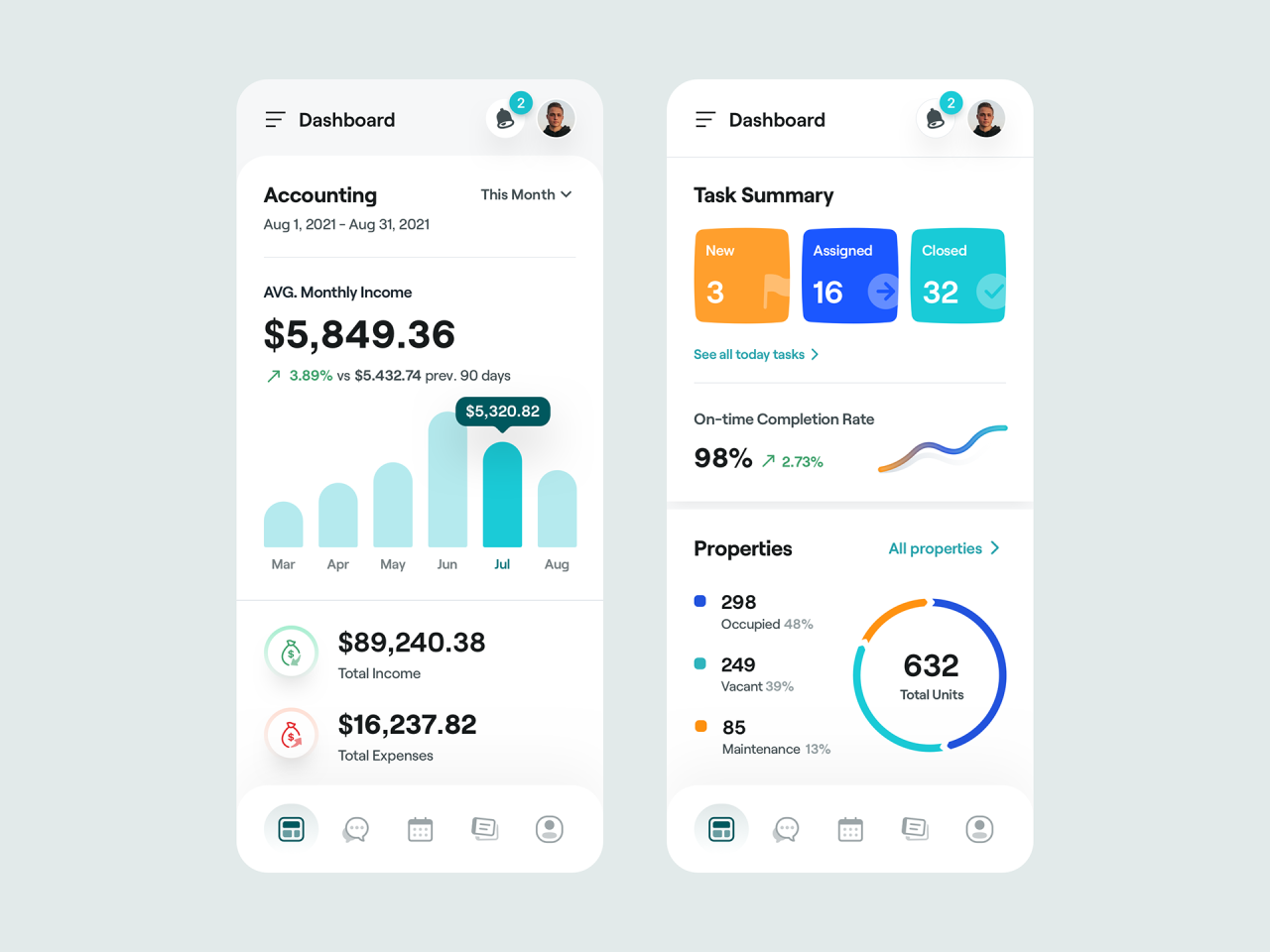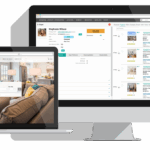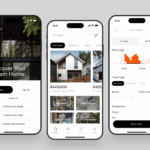Mobile home real estate management software for small businesses serves as a game-changer in the real estate sector, streamlining operations and enhancing efficiency. In today’s competitive environment, small businesses require tools that not only simplify property management but also improve profitability. This software is designed specifically for mobile home communities, distinguishing itself with features tailored to the unique challenges of this niche market.
By harnessing automation and specialized functionalities, small businesses can take control of their management processes, making informed decisions that lead to growth. From tenant screening to maintenance tracking, this software offers a comprehensive solution that addresses the needs of modern real estate operations.
Overview of Mobile Home Real Estate Management Software
Mobile home real estate management software is designed specifically to streamline and enhance the operations of businesses that manage mobile home parks and similar properties. By providing tailored functionalities, this software addresses the unique needs of the mobile home sector, allowing small businesses to operate more efficiently and effectively.The core functionalities of mobile home real estate management software include tenant management, lease tracking, maintenance requests, and financial reporting.
These features work together to simplify the management process, thereby ensuring that property owners can focus on providing quality living experiences for their tenants. Automated reminders and notifications play a crucial role in keeping both property managers and tenants informed, minimizing miscommunication and enhancing operational transparency.
Key Features of Mobile Home Real Estate Management Software
The distinguishing features of mobile home real estate management software set it apart from general property management solutions. The following points highlight these essential characteristics:
- Tenant Database Management: This allows users to maintain comprehensive records of tenants, including rental history, payment status, and personal information, which is crucial for effective communication and service delivery.
- Lease Management: Users can easily track lease agreements, renewal dates, and compliance with terms, helping to avoid legal issues and ensure smooth transitions between tenants.
- Maintenance Tracking: A dedicated maintenance module allows tenants to submit repair requests directly, while property managers can monitor the status and history of maintenance issues, which helps in timely resolutions and enhances tenant satisfaction.
- Financial Reporting Tools: The software provides detailed financial insights through customizable reports, which helps small business owners manage their budgets, track income, and assess the profitability of their properties.
- Automated Billing and Payment Processing: With integrated payment systems, tenants can easily pay rent online, and property managers can automate reminders, reducing late payments and improving cash flow.
- Mobile Accessibility: Many solutions offer mobile applications, allowing property managers to manage their operations on-the-go, which is crucial in the fast-paced real estate environment.
Each of these features is designed to cater specifically to the needs of mobile home management, ensuring that small businesses in this sector can operate with the same level of sophistication as larger entities, while still maintaining a personal touch in their services.
Benefits of Using Software for Small Business Management
Utilizing mobile home real estate management software can significantly enhance the operational efficiency of small businesses. This software provides streamlined processes that allow owners and managers to focus on growth rather than getting bogged down in administrative tasks. By adopting such technology, small businesses can unlock a range of benefits that contribute to overall success.Mobile home real estate management software automates various property management tasks, leading to notable increases in efficiency.
For example, billing and collections processes can be automated, reducing the need for manual invoicing and follow-ups. This not only saves time but also minimizes errors associated with human input. Additionally, maintenance requests can be tracked and managed through a centralized platform, allowing for quicker response times and improved tenant satisfaction.
Automation in Property Management Tasks
Automation plays a crucial role in optimizing property management operations. The following illustrates how specific tasks benefit from automation:
- Lease Management: Electronic lease agreements streamline the signing process, allowing tenants to sign documents digitally, reducing waiting times and paperwork.
- Payment Processing: Automated payment reminders and online payment options decrease the occurrence of late payments, ensuring a more consistent cash flow.
- Tenant Communication: Automated communication tools enable property managers to send out essential updates or reminders, fostering better relationships with tenants.
- Maintenance Scheduling: Automated maintenance tracking ensures issues are addressed promptly, improving tenant retention rates and overall property conditions.
By automating these tasks, small businesses can reallocate their human resources towards more strategic activities, such as marketing and tenant engagement, ultimately leading to enhanced service delivery and tenant satisfaction.
Cost Reduction and Improved Profitability
The integration of specialized software also aids in reducing operational costs, thereby improving profitability. The following points highlight how businesses can achieve these outcomes:
- Reduced Labor Costs: Automation reduces the need for extensive administrative staff, allowing businesses to operate efficiently with fewer employees.
- Minimized Errors: Software minimizes human error in billing and data entry, preventing costly mistakes that can arise from manual processes.
- Data-Driven Decision Making: Analytical tools within the software help in tracking performance metrics, enabling informed decisions that enhance revenue streams.
- Streamlined Operations: By centralizing data and processes, businesses can reduce time spent on management tasks, allowing for quicker adaptation to market changes.
As a result, small businesses that implement mobile home real estate management software not only cut costs but also position themselves for long-term financial success. By leveraging technology, they can focus on strategic growth initiatives while ensuring their properties are managed effectively and efficiently.
Key Features of Mobile Home Real Estate Management Software
Mobile home real estate management software is essential for small businesses looking to streamline their operations and improve efficiency. With the growing complexity of property management, selecting software that encompasses key features can significantly impact productivity and profitability. This software should include robust tools that address various aspects of managing mobile home properties, including tenant relations, financial tracking, and maintenance oversight.
Understanding these critical features can help small business owners make informed decisions when selecting the right software solution.
Essential Features to Consider
When evaluating mobile home real estate management software, small businesses should prioritize the following essential features:
- Tenant Screening: Efficient tenant screening tools allow property managers to assess potential tenants through credit checks, rental history, and background checks, ensuring that only reliable tenants are selected.
- Lease Management: This feature helps in tracking lease agreements, renewals, and expirations, thereby facilitating timely notifications and reducing the risk of lapses in tenancy.
- Maintenance Tracking: A user-friendly maintenance tracking system ensures that repair requests are logged, assigned, and managed efficiently, which enhances tenant satisfaction.
- Accounting and Financial Reporting: Integrated accounting features provide insights into income and expenses, allowing for better budgeting and financial forecasting.
- Online Payment Processing: Streamlined online payment options improve cash flow and reduce late payments by making it easier for tenants to pay their rent and fees.
- Communication Tools: Effective communication tools help maintain clear channels between property managers and tenants, facilitating prompt responses to inquiries and concerns.
- Reporting and Analytics: Comprehensive reporting tools enable property managers to analyze performance metrics, tenant behavior, and financial health, aiding in strategic decision-making.
Importance of Reporting and Analytics Tools
Reporting and analytics tools are vital components of mobile home real estate management software. They provide small businesses with the data necessary to make informed decisions regarding their properties. By leveraging these tools, property managers can identify trends, optimize rental pricing, and enhance tenant retention strategies.For instance, analytics can reveal peak seasons for occupancy and highlight areas where marketing efforts might be improved.
By analyzing tenant feedback and maintenance records, managers can proactively address issues that may impact tenant satisfaction.
Comparison of Features Across Software Options
When considering different mobile home management software options, it’s crucial to compare the features they offer to determine which best meets the needs of your business. Below is a comparative overview of popular software solutions:
| Software | Tenant Screening | Maintenance Tracking | Accounting Features | Reporting Tools |
|---|---|---|---|---|
| Software A | Yes | Basic | Comprehensive | Standard |
| Software B | Yes | Advanced | Standard | Advanced |
| Software C | No | Basic | Comprehensive | Standard |
| Software D | Yes | Advanced | Standard | Advanced |
This comparison illustrates that while some software may excel in tenant screening and maintenance tracking, others may offer superior financial features or reporting capabilities. Small businesses should assess their specific needs and budget to select the most suitable software for their mobile home management requirements.
Implementation Strategies for Small Businesses

Implementing mobile home real estate management software in a small business is a structured process that requires careful planning and execution. This ensures that the transition is smooth and that the staff can effectively utilize the new system. A well-defined implementation strategy can significantly enhance operational efficiency and improve management of mobile home properties.The implementation process typically unfolds in a series of steps that guide small businesses through the transition to new software.
Understanding these steps is crucial for maximizing the software’s benefits while minimizing disruption to ongoing operations.
Step-by-Step Implementation Process
The implementation of mobile home real estate management software can be broken down into several critical steps:
- Assessment of Needs: Evaluate your current processes to identify specific needs the software should address. This includes determining functionality required for property management, tenant communications, and accounting.
- Software Selection: Choose software that best fits your business requirements. Consider factors like user-friendliness, scalability, and customer support when making your decision.
- Data Migration Planning: Create a plan for migrating existing data into the new system. This involves determining data types, formats, and sources from which the data will be imported.
- Installation and Configuration: Install the software on your devices, followed by configuring it to align with your business processes, including setting up user accounts and permissions.
- Staff Training: Conduct training sessions for all staff members to familiarize them with the new software functionalities and workflows. This is crucial for ensuring system adoption and efficiency.
- Testing and Feedback: Run a test phase to identify any issues or areas for improvement. Gather feedback from staff to make necessary adjustments before full-scale implementation.
- Full Rollout: Launch the software across the business. Monitor performance and address any immediate concerns during the initial usage phase.
Importance of Staff Training
Training staff on the new software is a fundamental element of successful implementation. Proper training ensures that employees are competent in using the software, which directly impacts productivity and reduces frustration that may arise from unfamiliarity.A training plan should be thorough and structured to cover all essential aspects of the software. Here’s an example of a potential training plan:
- Introduction Session: Provide an overview of the software, its features, and how it will benefit the business.
- Hands-on Workshops: Schedule sessions where staff can interact with the software in a controlled environment, allowing them to practice various functions.
- Role-specific Training: Customize sessions for different roles within the organization, focusing on features relevant to their specific responsibilities.
- FAQs and Troubleshooting: Prepare a list of common questions and issues, providing solutions and resources for staff to refer back to after training.
- Continuous Support: Establish a support system where staff can seek assistance post-implementation, ensuring ongoing learning and support.
Data Integration Strategies
Integrating existing data into the new software system is essential for a seamless transition. Effective data integration involves several key strategies to ensure accuracy and usability of the data.
“Data integrity is critical; any inaccuracies during migration can lead to operational inefficiencies.”
The following methods are crucial for successful data integration:
- Data Cleanup: Prior to migration, clean existing data to eliminate duplicates, inaccuracies, and outdated information. This ensures that only relevant data is transferred.
- Mapping Data Fields: Clearly define how data from existing systems will correspond to fields in the new software. This mapping should be documented and reviewed to prevent errors.
- Testing Migration: Conduct trial migrations with a small subset of data to identify potential issues. Use these tests to refine the process before executing the full migration.
- Validation Post-Migration: After the complete data transfer, validate the data to ensure it is accurate and correctly formatted within the new system.
Challenges and Solutions in Software Adoption
Adopting new management software can pose significant challenges for small businesses. These challenges often stem from resistance to change, lack of resources, and the technical complexities associated with new systems. Understanding these obstacles and the corresponding solutions can facilitate a smoother transition and enhance the overall management of mobile home real estate.Small businesses frequently encounter various hurdles during software adoption, which can hinder their operational efficiency and team morale.
Recognizing these challenges is the first step toward implementing effective solutions.
Common Challenges in Software Adoption
The following challenges are commonly faced by small businesses when adopting new management software:
- Resistance to Change: Employees may feel apprehensive about altering their workflows or may be skeptical about the benefits of the new software.
- Lack of Technical Skills: There may be a skills gap within the team, resulting in difficulties in utilizing the new software effectively.
- Insufficient Training: Without adequate training sessions, employees may struggle to adapt to the new system, leading to confusion and frustration.
- Data Migration Issues: Transferring existing data to the new system can be a complex process, which may result in data loss or corruption if not managed properly.
- Cost Considerations: Small businesses often operate on tight budgets, making them wary of the costs associated with new software, including subscription fees, training, and potential downtime.
Strategies for Overcoming Resistance to Change
Overcoming resistance within teams is vital for the successful adoption of new software. Several strategies can help ease this transition:
- Involve Employees Early: Engaging team members in the selection and implementation process can promote buy-in and reduce resistance. Their insights can be invaluable in identifying needs and concerns.
- Highlight Benefits: Clearly communicating the benefits of the new software—such as increased efficiency, better organization, and improved communication—can help alleviate fears and motivate employees to embrace the change.
- Offer Incentives: Providing incentives for adopting the new software, such as recognition or small rewards, can encourage employees to actively participate in the transition.
Importance of Ongoing Support and Updates
Continuous support and updates from software providers play a crucial role in ensuring that small businesses can effectively utilize their management software. Ongoing support allows businesses to quickly resolve technical issues, minimizing disruptions to their operations. Regular updates can introduce new features and enhancements that improve functionality and adapt to changing business needs. A software provider that offers robust customer support and regular updates demonstrates a commitment to its users, fostering a productive partnership that contributes to the long-term success of small businesses.
Effective adoption of software is not just about the initial implementation; it involves continuous learning and adaptation to maximize its potential.
Case Studies and Success Stories
The impact of mobile home real estate management software can be profound for small businesses operating in this niche market. By streamlining operations, optimizing management tasks, and enhancing tenant and property management, these tools enable businesses to achieve significant improvements in efficiency and profitability. Below are detailed examples of small businesses that have successfully implemented mobile home real estate management software, along with the results they achieved and the features that contributed to their success.
Success Stories of Small Businesses
Several small businesses have transformed their operations through the effective use of mobile home real estate management software. These case studies illustrate the tangible benefits that result from utilizing targeted tools and features.
1. Green Valley Homes
Before Software Adoption
Manual tracking of rent payments and tenant information led to errors and delays in communication.
After Software Adoption
Integrated software solutions allowed for automated reminders and payment tracking, resulting in a 30% increase in on-time rent payments.
2. Sunny Acres Mobile Home Park
Before Software Adoption
Inefficient management of maintenance requests caused tenant dissatisfaction and prolonged delays.
After Software Adoption
The management software included a dedicated maintenance request feature which improved response times by 50%.
3. Maple Leaf Estates
Before Software Adoption
Difficulty in managing property listings and maintaining accurate vacancy rates.
After Software Adoption
The software provided real-time updates on vacancies and enabled streamlined online listings; vacancy rates dropped by 40%.To summarize the results of these case studies, the following table presents key metrics before and after software adoption:
| Business Name | Key Metrics | Before Software Adoption | After Software Adoption |
|---|---|---|---|
| Green Valley Homes | On-time Rent Payments | 70% | 90% |
| Sunny Acres Mobile Home Park | Maintenance Request Response Time | 5 days | 2.5 days |
| Maple Leaf Estates | Vacancy Rate | 25% | 15% |
The success of these businesses can be attributed largely to specific features of the mobile home real estate management software. Tools such as automated reminders, real-time data analytics, and streamlined maintenance request systems played crucial roles in delivering measurable improvements in operations, tenant satisfaction, and overall business performance. Implementing these technologies not only addresses common challenges faced by small businesses but also positions them for sustainable growth in a competitive market.
Future Trends in Mobile Home Real Estate Management: Mobile Home Real Estate Management Software For Small Businesses
The landscape of mobile home real estate management is evolving rapidly, driven by advancements in technology and changes in consumer expectations. As small businesses navigate these shifts, understanding the future trends in management software becomes essential for maintaining a competitive edge. This section delves into emerging developments in software, innovations fueled by AI and machine learning, and evolving consumer behaviors that will reshape the industry.
Emerging Developments in Software
The future of mobile home real estate management software is poised for transformative enhancements. These developments will likely focus on improving user experience, streamlining operations, and integrating new technologies. Anticipated advancements include:
- Cloud-Based Solutions: The shift towards cloud computing will facilitate easier access to data and improved collaboration among team members. This enables real-time updates and remote access, enhancing operational efficiency.
- Mobile Applications: With the increasing reliance on smartphones, mobile applications will become integral, allowing property managers to handle tasks on-the-go and providing tenants with convenient access to services.
- Integrated Platforms: Software solutions that combine property management, accounting, and customer relationship management (CRM) into a single platform will reduce the need for multiple systems, simplifying operations for small businesses.
Impact of AI and Machine Learning
Artificial intelligence (AI) and machine learning are set to revolutionize how mobile home real estate management operates. These technologies can analyze vast amounts of data to provide actionable insights, automate routine tasks, and enhance decision-making processes. Key areas of impact include:
“AI and machine learning can predict maintenance needs, optimize pricing strategies, and improve tenant relations through personalized communication.”
- Predictive Maintenance: AI algorithms can analyze patterns in maintenance requests, predicting potential issues before they arise, thus reducing downtime and operational costs.
- Dynamic Pricing Models: Machine learning can facilitate the development of dynamic pricing strategies that adjust rental rates based on market trends, occupancy rates, and economic conditions.
- Enhanced Customer Service: AI-powered chatbots can provide immediate responses to tenant inquiries, improving satisfaction and freeing up staff time for more complex issues.
Trends in Consumer Behavior, Mobile home real estate management software for small businesses
As consumer preferences continue to shift, mobile home real estate management software must adapt to meet these new demands. Understanding these evolving behaviors is crucial for software developers and property managers alike. Notable trends include:
- Increased Demand for Transparency: Tenants are seeking more transparency regarding fees, maintenance histories, and rental terms. Software solutions that provide easy access to this information will be favored.
- Preference for Self-Service Options: Many consumers prefer self-service platforms that allow them to manage their accounts, submit maintenance requests, and communicate with management without needing direct interaction.
- Sustainability Considerations: With growing awareness of environmental issues, tenants are increasingly considering eco-friendly practices in their housing choices, prompting property managers to invest in sustainable technologies and practices.
Closing Summary
In summary, the adoption of mobile home real estate management software for small businesses provides numerous advantages, enhancing operational efficiency while reducing costs. As demonstrated through various case studies, businesses that embrace such technology not only improve their management practices but also position themselves for future success. With ongoing developments in software capabilities driven by emerging technologies, the future looks promising for small businesses in the real estate sector.




